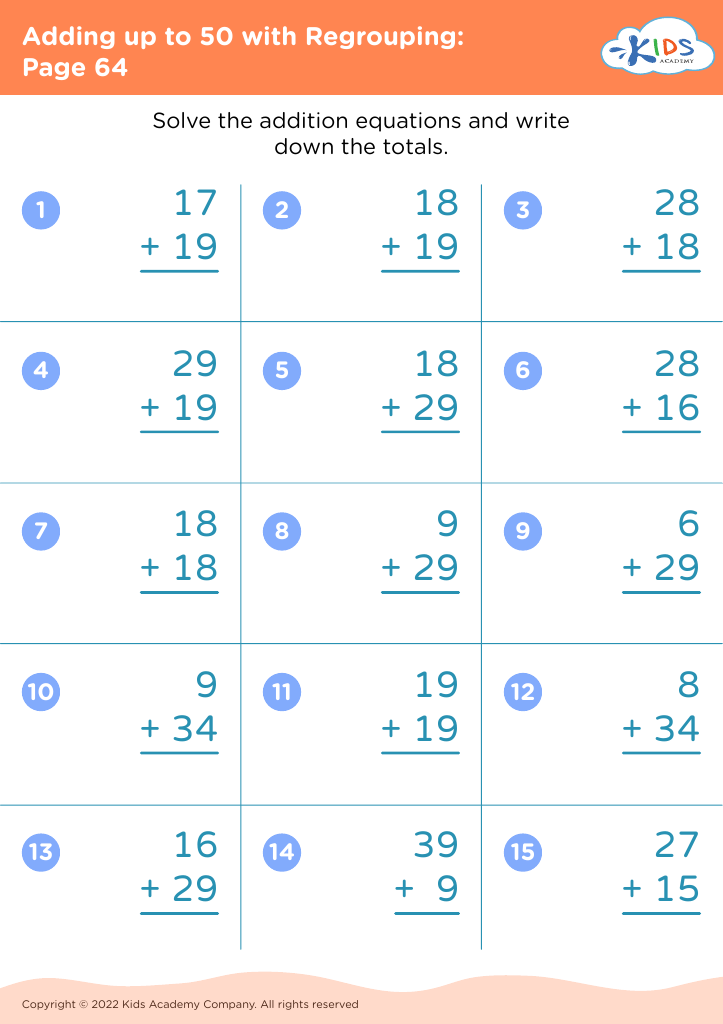Money recognition Worksheets for Ages 5-8
9 filtered results
-
From - To
Empower your child’s financial literacy with our "Money Recognition Worksheets for Ages 5-8." These fun and engaging worksheets help young learners identify and value different coins and bills, develop key counting skills, and understand the concept of money. Featuring interactive activities and colorful illustrations, our worksheets make learning about money enjoyable and effective. Perfect for kindergarten to early grade students, these resources provide a strong foundation in money recognition necessary for real-life applications. Equip your kids with the tools they need for a prosperous future by incorporating these essential worksheets into their daily learning routine!
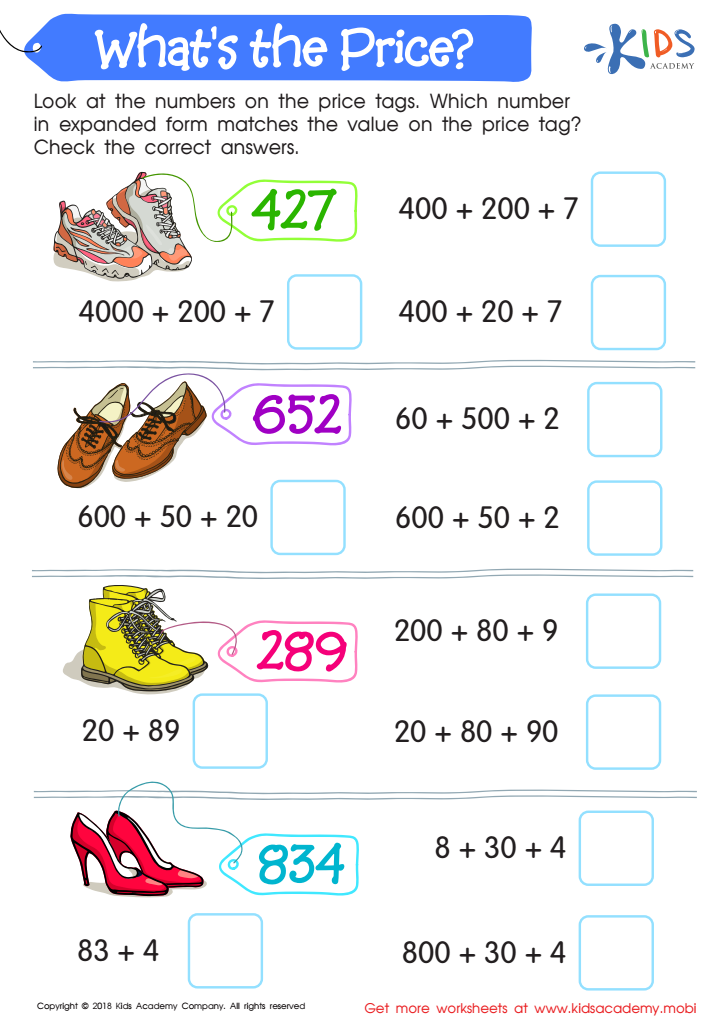

What's the Price? Worksheet
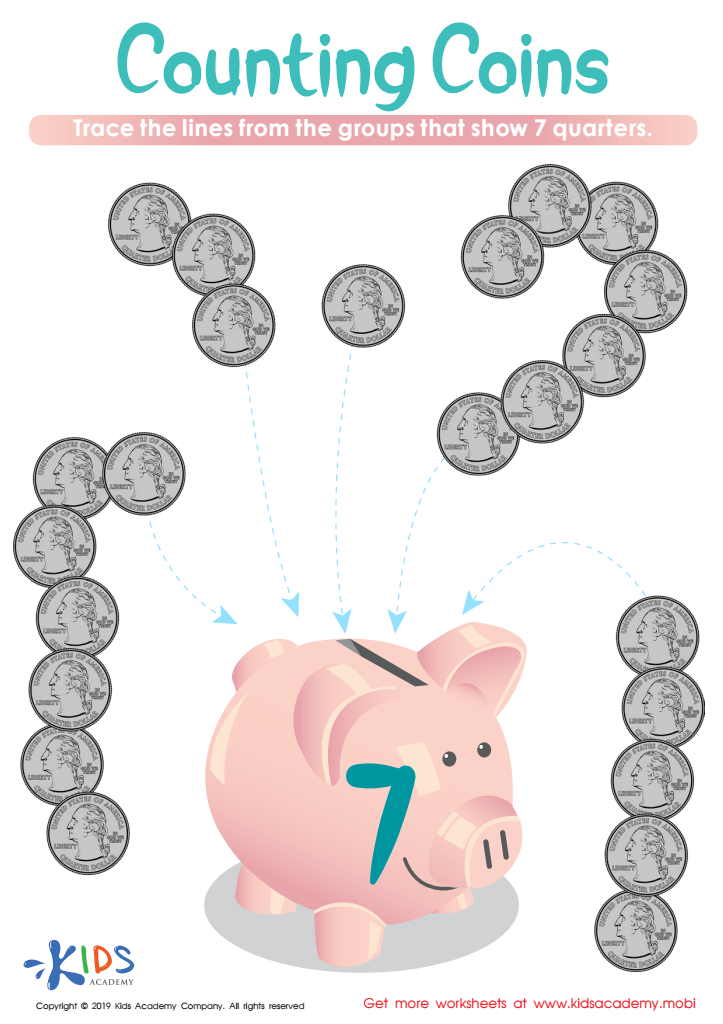

Counting Coins Worksheet
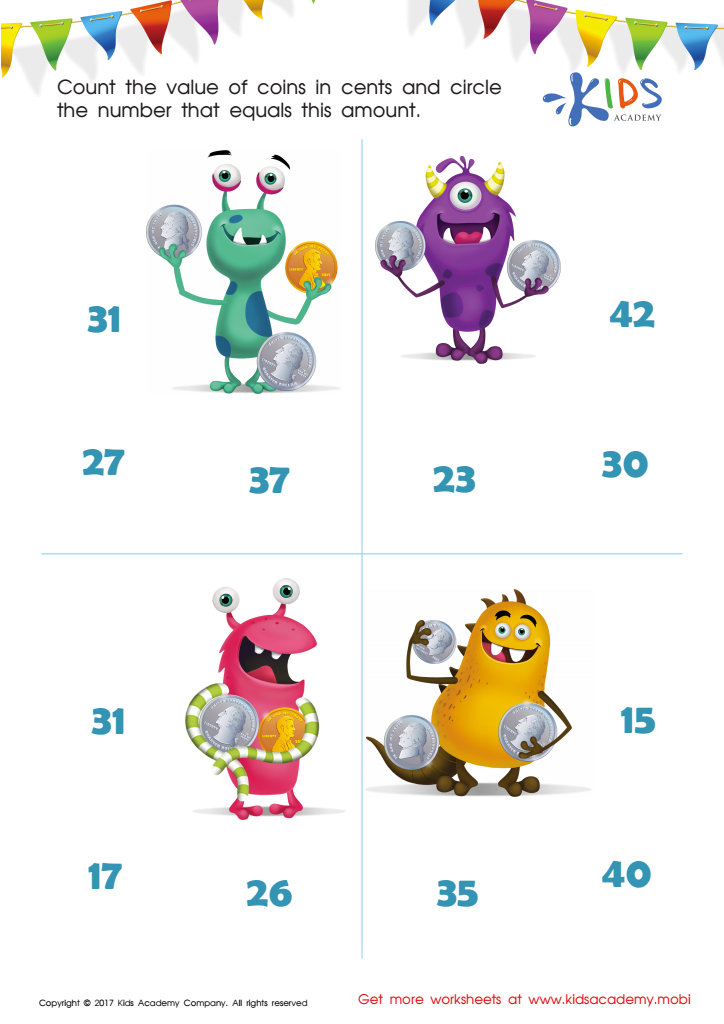

How Many Coins Money Worksheet
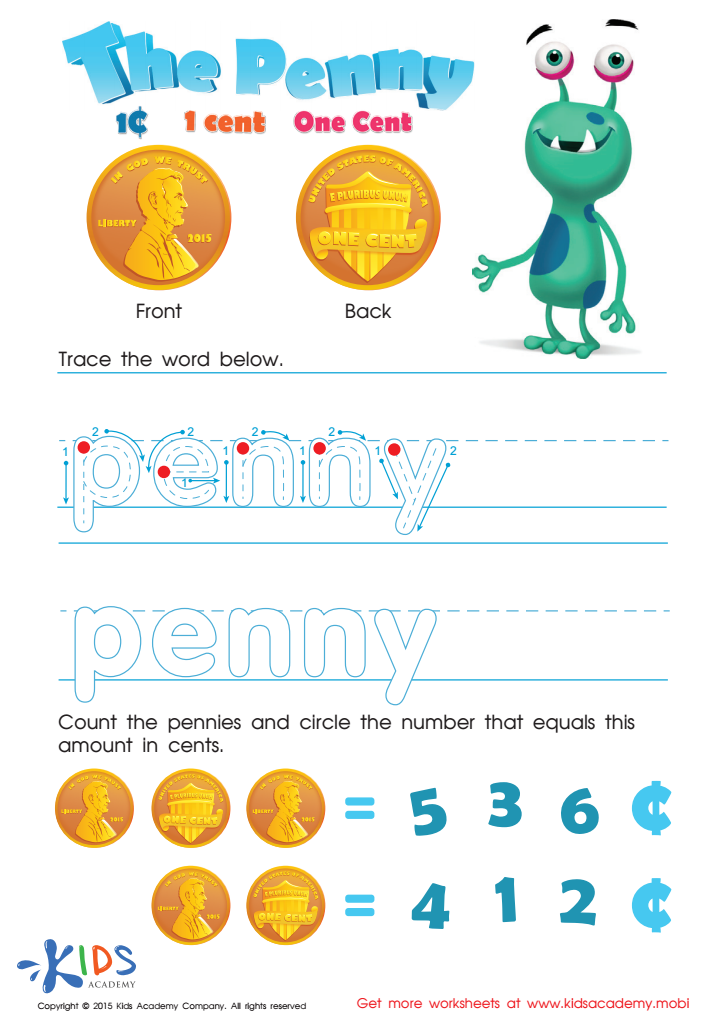

One Cent or the Penny Money Worksheet
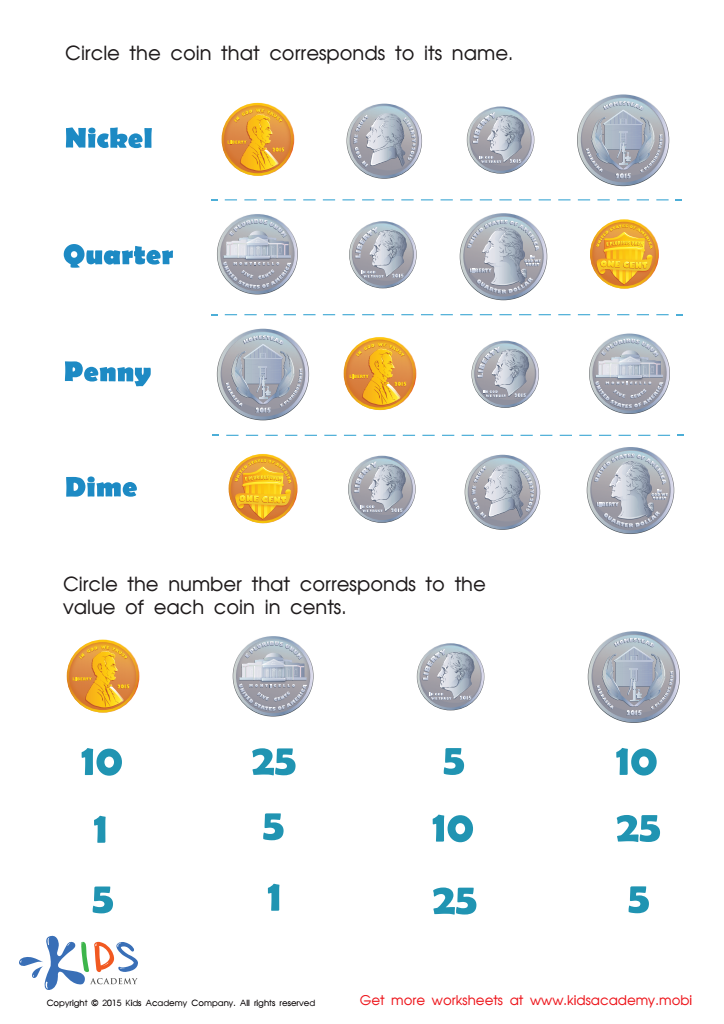

Coin Names and Values Money Worksheet
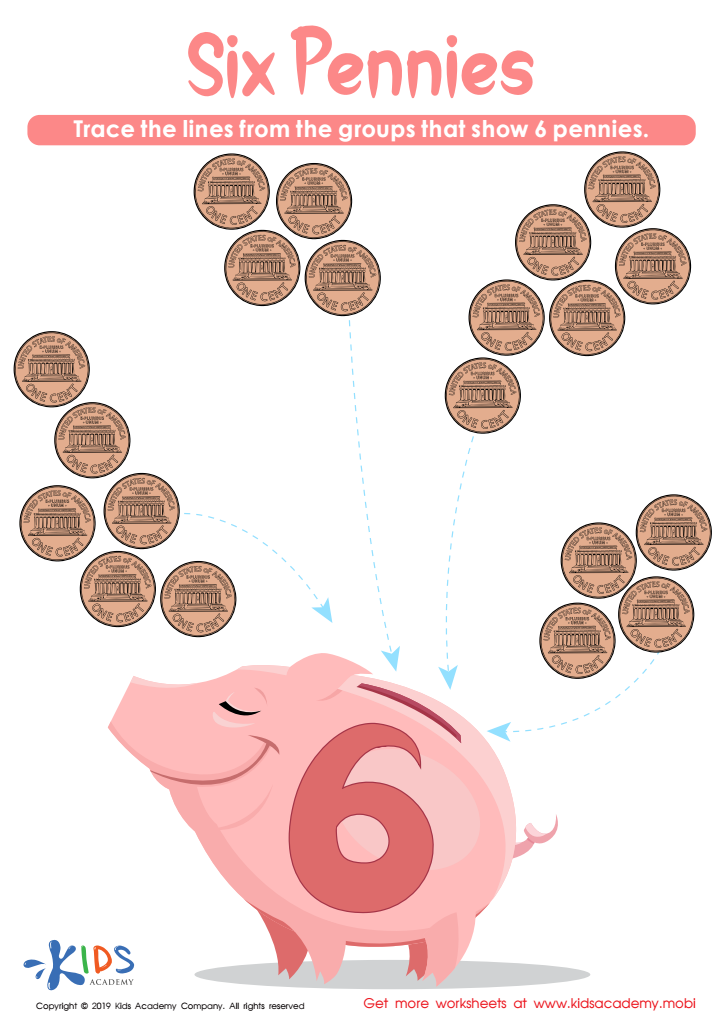

Six Pennies Worksheet
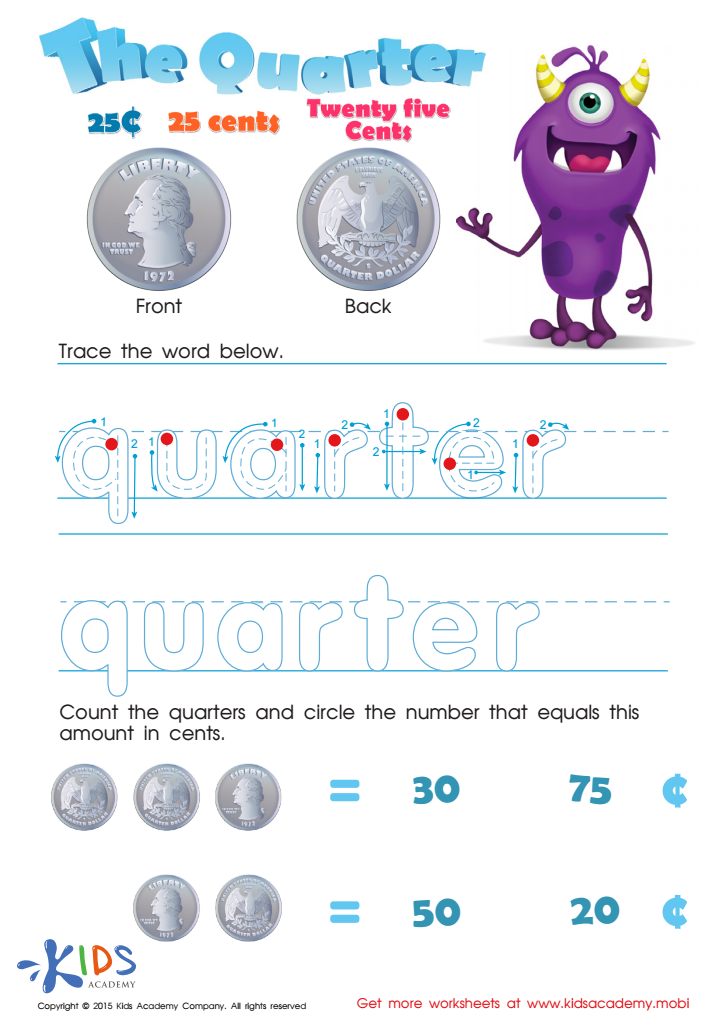

Twenty Five Cents or the Quarter Money Worksheet
Money recognition for ages 5-8 is a vital foundational skill that parents and teachers should prioritize for several key reasons. At this impressionable age, children are highly capable of absorbing and understanding basic concepts that will serve as building blocks for more complex learning. Teaching young children how to recognize different coins and bills helps them develop essential life skills, including basic arithmetic, which is central to their overall cognitive development.
Understanding money and its value also lays the groundwork for financial literacy. Early exposure demystifies money, making future lessons on saving, budgeting, and spending more comprehensible and meaningful. This understanding fosters a sense of responsibility and decision-making skills, enabling children to make better choices in various scenarios.
Moreover, familiarizing children with money helps boost their confidence in real-world situations. Whether buying a snack at school or saving for a small toy, these experiences teach practical applications of math and reinforce concepts like counting, addition, and subtraction. Socially, when children understand money exchanges, it can facilitate smoother social interactions, building their communication and negotiation skills.
Early money recognition also equips children to identify the value of different denominations, reducing confusion and mistakes as they grow older. Overall, fostering an early understanding of money contributes significantly to a child's academic, social, and practical life skills development.
 Assign to My Students
Assign to My Students


